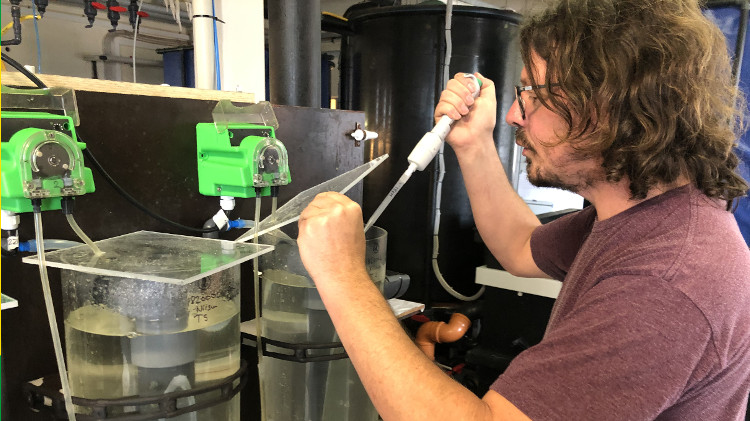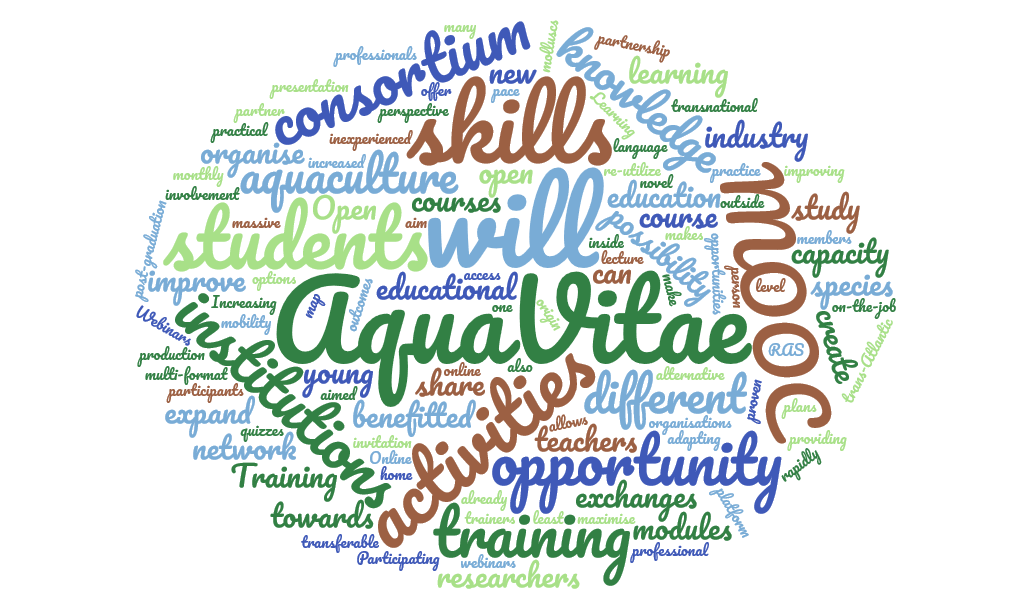AquaVitae develops a number of training activities:
- Industry apprenticeship
- Student exchanges
- SALTS MOOC
- Complementary activities
AquaVitae develops a number of training activities:

Pascal Barreau, aquaculture technician in DTU hatchery. Photo: Camille Saurel, DTU.
For many years the EU has strived for increased industry involvement in research activities, however, this has proven to be challenging. Apprenticeships opportunities in AquaVitae are an exciting opportunity to create a bridge between research institutions and the industry while connecting both sides of the Atlantic.
Apprenticeships are structured learning programs in which an inexperienced person works with a skilled professional, gaining practical, on-the-job experience. These apprenticeships will have a trans-Atlantic approach and can be conducted at any aquaculture company, either or not in the AquaVitae consortium. The programme will have an expected duration of 6 months, approximately.
Students are benefitted from exchanges by:
Participating companies are benefitted from exchanges by:
AquaVitae has offered more than 10 student exchanges among different sending centres and hosting institutions (AquaVitae partners) accross the Atlantic.
Student exchange is a capacity-building opportunity, both for the students and their home and higher education institutions. Students can expand their international network and improve their skills, while organisations can improve their staff skills and create transnational cooperative partnerships.
Click on the button below to read their experiences.

Classroom by Pixabay.

Word cloud on training, AquaVitae.
A massive open online course (MOOC) is an alternative to traditional schooling. The format of a MOOC allows reaching students and teachers worldwide as well as creates an opportunity for participants to study at their own pace. SALTS (Sustainable Aquaculture on Low Trophic Species) MOOC will also serve as a tool towards building capacity for professionals in the aquaculture sector.
The preliminary program contains 11 modules on topics such as production systems (IMTA, RAS), various low-trophic species (molluscs, echinoderms, novel species, etc.), and governance and value chains. A multi-format platform will combine videos, texts, quizzes and forums to support a dynamic learning environment. Interested? Click here to get more info and enroll the course.
AquaVitae partner UiT will organise different training activities:

Catch up with AquaVitae training opportunities in our newsletter.
Project Coordinator: Philip James
E-mail: philip.james@nofima.no
E-mail: aquavitaeproject@cetmar.org

© 2020 All rights reserved Aqua Vitae · Terms of Site · Data privacy